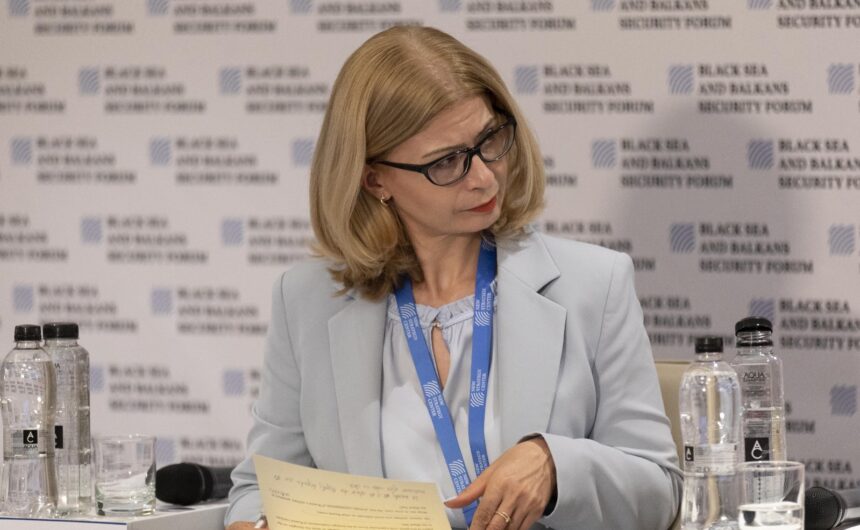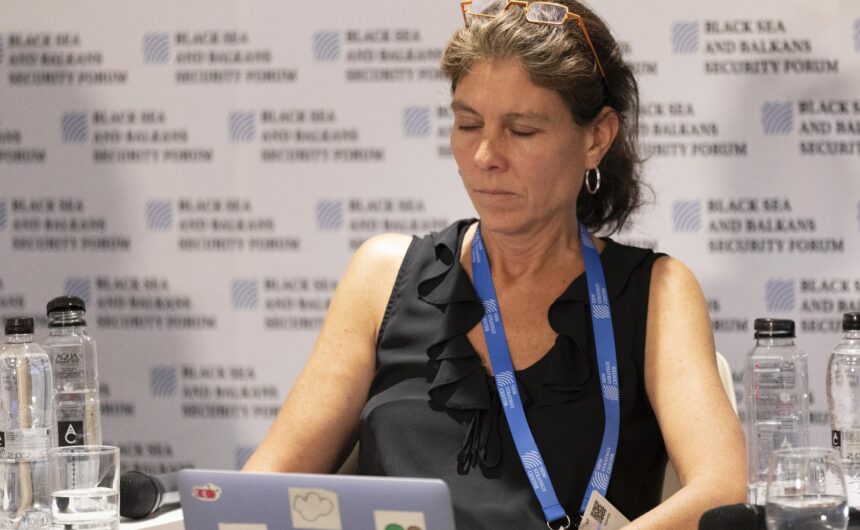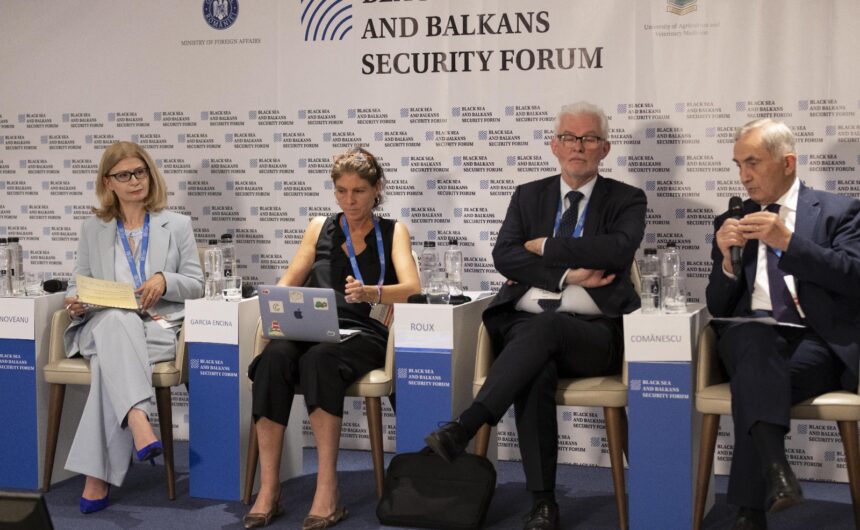The panel was chaired by Ms. Carmen Rîjnoveanu, Director of the Institute for Political Studies of Defense and Military History (ISPAIM), Romania. The discussion featured Ambassador Michaël Roux, Ambassador for the Eastern Partnership and the Black Sea, France; Ambassador Lazăr Comănescu, Secretary General of the Organization of the Black Sea Economic Cooperation, Romania; Mr. Mykhailo Samus, Non-resident Senior Expert at the New Strategy Center and Director of the New Geopolitics Research Network, Ukraine (via VTC); and Ms. Carlota Garcia Encina, Senior Analyst at the Elcano Royal Institute, Spain.
The panel highlighted how Russia’s aggressive actions have fundamentally reshaped security dynamics in the Black Sea region, emphasizing the need for increased NATO involvement and a more assertive European Union strategy centered on deterrence and regional cooperation. Ukraine’s deployment of naval drones has shifted the maritime balance of power, contributing to a degree of stability, though significant risks remain—particularly if Russia adopts similar tactics. A potential ceasefire could restrict Ukraine’s operational flexibility and provide Russia with an opportunity to expand its influence through legal and hybrid means. In this context, participants stressed the importance of strengthened regional coordination and the strategic relevance of the Middle Corridor in reducing Europe’s dependence on Russia. Moreover, the increasingly close alignment between Russia, China, and Iran was identified as a major threat to both regional and broader Western security.
Watch the live session on YouTube: https://youtube.com/live/r9YL_53Qzc4?feature=share





